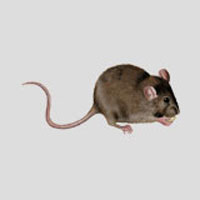Why do I have mice?
By Chris Williams on June 1, 2013.
 Do you have mice in your apartment and or house? Find out why by Colonial Pest Control expert Zack Ciras.
Do you have mice in your apartment and or house? Find out why by Colonial Pest Control expert Zack Ciras.
Transcription:
Interviewer: Why do I have mice?
Interviewee: The “Why me?” question, right? Mice need three things. They need food, they need shelter, and they need heat. Food, they can bring in. Nuts and berries, acorns, seeds from the outside. They can survive on very little that you have around the house they might have access to.
Heat. Your house is a lot warmer than a New England winter and shelter is very easy to come by within a home — insulation in the wall and attic, underneath the Christmas decorations. They don’t need a lot of space for their shelter.
Why do you have mice? They had access to these things. You may have holes around your house, around the foundation, around the roof line. Some place for them to come into your house from the outside.
Interviewer: Is treating for mice safe?
Interviewee: Safety is our top priority, of course. The way we approach a mouse situation is uniquely comprehensive. We want to find the holes where they’re coming in. We exclude them from entering the house in the first place. Any existing population, we eliminate with a various amount of controls. We can use mechanical controls, snap traps, glue boards, and we use a lot of anticoagulant baits. The baits are kept in child and pet resistant cases. We keep them out of reach, secured down, no access that your children or pets would have to these items.
The types of bait we use are among the safest in the industry. There’s no secondary poisoning so therefore if your cat happens to have a mouse that’s had some poison, the poison doesn’t transfer to your pet.
Interviewer: When mice are exterminated, will they smell?
Interviewee: When mice die in your house, there’s a chance they might smell. It’s on the rare side. Typically, when a mouse dies, whether it’s from natural causes or from our baits, they’re going to die near the nest. They spend most of the time near the nesting sites. After they eat our baits, it takes between three and five days for them to fully expire. Most of the time is going to be spent near the nest. Now, if they’re nesting outside, beautiful. If they’re nesting on an exterior wall, likely not to smell on the thing, the attic, some place that’s really tucked away from any airflow to you in your living areas, probably not going to notice anything.
After a couple of weeks, fully dehydrates, no smell remains after that, anyway. Sometimes, if they’re on an interior wall or on the floor in the basement, some place that’s accessible, you might be able to smell it, if you could find them. We can get rid of them for you. But like I said, a couple of weeks, fully dehydrates, and that should be the end of it. But it is on the rare side.
Interviewer: What concern should I have if I have a mouse infestation?
Interviewee: Mice might look cute to you, but they do come with a lot of problems — chewing the wires within the walls from the attic. It’s a leading cause of fire dangers in homes these days. Mice are commensal rodents — they share our tables, what commensal means. They’re bringing everything they ran through right to the table with us. They’re getting into our food supply, damaging the food supply. They carry a lot of diseases. A lot of diseases — LCMV, Hantavirus, Lyme is carried by mice as well. There’s a lot of diseases they carry. How do they transfer the diseases? Everywhere they go. They could drop a little of urine, a little of poop. They’re nasty little buggers. They’re always using your house everywhere they go as a restroom.